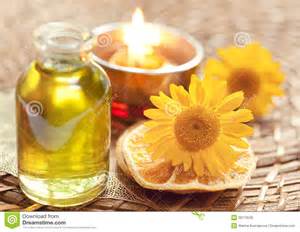






If the Ancient Egyptians perfected the art of using the essences of plants to control emotion, putrefaction and disease, new discoveries of the medicinal power of plants continued to be made. The Greeks, for instance, developed medicine from a part-superstition to a science. Hippocrates, popularly known as the Father of Medicine, was the first physician to base medical knowledge and treatment on accurate observation, and ever since, of course, doctors have adhered to his principles outlined in the Hippocratic Oath. One of his beliefs was that a daily aromatic bath and a scented massage were the way to health, very much a central principle of today`s aromatherapy.
He was aware of the antibacterial properties of certain plants and when an epidemic of plague broke out in Athens he urged the people to burn aromatic plants at the corners of the streets to protect themselves and prevent the plague spreading. At this time, too, botanical knowledge was expanding, reaching its peak in the Historia Plantarum of Theophrastus, the so-called Father of Botany.
At the height of the power of Rome, it was "immigrant" Greek physicians and seekers after knowledge who dominated the medical world.One of these was Dioscorides, a Greek surgeon in Nero`s army, who wrote De Materia Medica, a comprehensive textbook on the properties and uses of medicinal plants. it was he who recorded further details such as when a plant and its active principles might be most powerful. This indisputable fact of plant life-that the principles are not always the same, depending on the time of day, time of year, and state of development-is utilized by the essential oil industry today, nearly 2´000 years later.
For instance, the poppy`s yield in the morning is four times greater than in the evening. Jasmine`s perfume and therefore its oil`s powers, are strongest in the evening; this is why Jasmine flowers are still picked at night in India for their olfactory qualities. Dioscorides also first used a decoction of willow to cure pain such as that caused by gout (it is this decoction which has since become our most common analgesic, aspirin).
The Romans, although more interested in the culinary than the medical properties of plants, were botanically enormously influential. As the legions advanced over Europe, the soldiers took with them seeds of the plants they needed or could not live without, to cultivate in the countries they occupied. Many herbal plants in England - parsley, fennel and lovage, for instance-were introduced by the Romans. Many still grow in the greatest profusion in the wild along the routes taken by the soldiers, seeds having dropped by the roadside, or around the old Roman settlements.
Reference:Aromatherapy: The Encyclopedia of Plants and Oils and How They Help You: Daniele Ryman
- Home
- Vaginal infections and inflammation
- Threat to the Forests
- The Vinegar treatment for Thrush
- Treating Acid Environments
- Your Basic Travel Kit - Tummy Troubles
- Pamela L. Crowell on the Prevention and Therapy of Cancer by Dietary Monoterpenes
- Thrush (Candida) Case History
- Problems In Pregnancy
- Thrush treatment for Men- Women
- The Work of Anne-Marie Giraud-Robert
- Fragrant Pharmacy
- Applications For Your Basic Care Kit - 4
- Whooping Cough
- Lymphoedema
- Bites and Stings - General Action - Your Basic Travel Kit
- The journey
- Your Basic Travel Kit - Fevers
- Applications For Your Basic Care Kit - 3
- Aromatherapy-Cramps
- Your Basic Travel Kit - The Heat
- Aromatherapy-Articles-A-Z
- Verrucas and Warts
- Rabid Bites and Scratches - Your Basic Travel Kit
- Your Basic Travel Kit
- Wrinkles and Ageing Skin - Facial Scrubs
- Wrinkles and Ageing Skin - Cleansers
- Wrinkles and the Ageing Skin
- Fragrant way to Beauty - 2
- The Fragrant way to Beauty
- A-Z of Dance and Sports Injuries - 7
- A-Z of Dance and Sports Injuries - 6
- A-Z of Dance and Sports Injuries - 5
- A-Z of Sports and Dance Injuries - 4
- A-Z of Sports and Dance Injuries-3
- A-Z of Sports and Dance Injuries-2
- A-Z of Sports and Dance Injuries
- Aromatherapy - Locker Room Scents
- Aromatherapy- Stress & Sports - Jacuzzis
- Aromatherapy-stress & Sport - Saunas
- Aromatherapy - stress & Sport - Showers
- Stress and Sport - Aromatherapy
- Foot Care - 2 - Aromatherapy
- Foot Care - Aromatherapy
- MUSCLES-Aromatherapy
We have 160 guests and no members online

